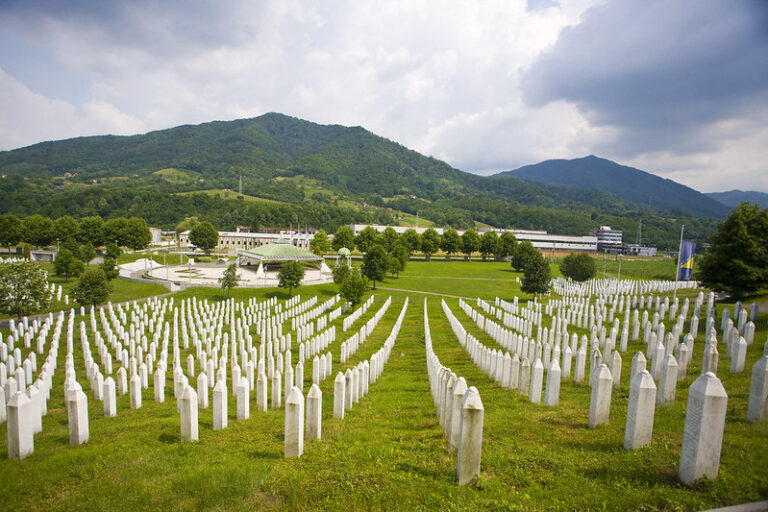On July 11, 1995, the town of Srebrenica in eastern Bosnia witnessed the worst mass killing on European soil since World War II. Thirty years have passed, but the pain still runs deep. Bosniak Muslim families continue to mourn the loss of over 8,000 fathers, sons, and brothers. For Muslims around the world, this genocide remains a painful reminder of what happens when the world turns its back on injustice.
Today in 2025, the echoes of Srebrenica grow louder. From Gaza to Kashmir, similar patterns of oppression and silence are unfolding. Srebrenica is not just history. It is a warning.
The Bosnian War and How Genocide Took Root
The genocide in Srebrenica followed the collapse of Yugoslavia in the early 1990s. Bosnia, home to Muslims, Croats, and Serbs, declared independence. However, nationalist Serb leaders aimed to build a “Greater Serbia” by eliminating non-Serb populations.
In eastern Bosnia, they targeted Muslims. Bosnian Serb forces launched a campaign of ethnic cleansing. They destroyed villages, raped women, and detained men in concentration camps. This was not random chaos. It was a deliberate strategy of terror.
What Happened in Srebrenica?
In 1993, the UN declared Srebrenica a “safe area.” By 1995, the enclave was overcrowded with Muslim refugees. Bosnian Serb forces under General Ratko Mladić surrounded the area.
On July 11, Mladić’s troops entered Srebrenica. Dutch UN peacekeepers failed to intervene. Over the next several days, Bosnian Serb forces separated men and boys from their families. They executed more than 8,000 of them in fields, schools, and warehouses. The bodies went into mass graves.
They assaulted women, traumatized children, and wiped out entire communities. These atrocities followed a plan. Military and political leaders orchestrated them at the highest levels.
Ethnic Cleansing and the Global Silence
Srebrenica was not the only location affected. Across eastern Bosnia, Serb forces committed mass killings, destroyed mosques, and erased Islamic heritage. Their goal was to eliminate the Muslim identity.
Western governments had access to intelligence. They knew the truth. Yet, they chose diplomatic caution over decisive action. The United Nations failed to protect civilians, even within a declared safe zone.
Only after the genocide did global outrage grow. The International Criminal Tribunal for the former Yugoslavia (ICTY) prosecuted some of the perpetrators. Mladić received a genocide conviction. Still, justice arrived late, and nothing could undo the betrayal or restore the lives lost.
Why Srebrenica Still Matters in 2025
Srebrenica is more than a case study. It is a lens through which we must view today’s crises. In Gaza, Muslims face collective punishment and large-scale violence. Political leaders follow the same patterns of silence or complicity.
The language used to dehumanize Muslims in Bosnia now applies to Palestinians. Justifications for inaction sound the same. Genocide begins with propaganda, grows through silence, and ends in mass graves.
What the Ummah Must Learn and Remember
The Prophet Muhammad ﷺ taught:
“Whoever among you sees an evil, let him change it with his hand; if he cannot, then with his tongue; and if he cannot, then with his heart—and that is the weakest of faith.” (Sahih Muslim)
Honoring the victims of Srebrenica means more than mourning. We must learn their stories, stand for truth, and build independent Muslim voices that cannot be silenced. We should teach our youth the lessons of this genocide and equip them with the tools to challenge injustice.
Memory is more than historical awareness. It is a form of resistance. It allows us to challenge propaganda, reject false narratives, and defend the dignity of oppressed communities.
Final Reflection
We remember Srebrenica not to remain trapped in grief but to remain committed to truth. The names of the victims are not just entries in history books. They are a reminder of what happens when justice is delayed and silence prevails.
Never trust the silence of the powerful. Always question the lies that justify oppression. It’s crucial to remember who the world abandons when genocide wears a new name.


